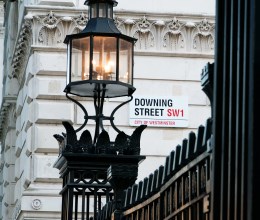
The dust has settled on the Chancellors Spring Budget, UK interest rates are at their highest for 14 years, there are mixed opinions about the state of the economy, inflation continues to be a thorn in the side of the majority of the population and the cost-of-living crisis surges on…
This is also a time when the UK government and opposition parties are developing their differing strategies to seek election/re-election come 2025. At least that is how it appears on the face of things.
The Chancellor avoided any references to the non dom regime in the Spring Budget, most likely keen to avoid drawing any further focus on the Prime Minister and his wife who retains a non dom status, albeit has elected to pay income tax on her worldwide income on an arising basis.
Labour have been very vocal about their intentions to bring this regime to an end if they secure power at the next election. This appears to be politically driven rather than fiscally driven. In fact, the think tank that stood behind the figures circulated by the Labour Party has acknowledged that their data from a study by Warwick University was based purely on the 2018 tax year (one year after the 2017 non dom reforms were enacted). That data has not been refreshed for the tax years 2019, 2020 or 2021. All of which exists and is known by now.
A number of European countries have followed a similar model to the UK non dom regime, such as Italy, Portugal and Greece as nations compete with one another to secure wealthy human capital into their economy due to the benefits that such individuals as house owners and spenders in the economy can bring, or even more so if such individuals also have business enterprises they wish to support in their new country of residence.
As a sweetener to entice such individuals to immigrate to the UK, the non dom regime allows pre-existing overseas wealth to remain outside of the scope of UK taxation at no cost for seven years and at an agreed surcharge rate for the following eight years. This is provided that such wealth is not brought into the country directly or indirectly.
The government maintains a view that the value of this benefit outweighs the tax foregone on that overseas wealth and contends that such individuals may never have selected the UK to be a new home were it not for such incentives such as the non dom regime.
Nonetheless Labour holds a very different perspective about this and sees that this is an unfair advantage offered to the wealthy and should not be allowed to continue in a modern society. Labour have gone further and also stated that they would reverse the abolition of the lifetime cap on pension relief, again an incentive perceived to favour wealthy individuals.
In reality, the rationale for the government including this additional cap in its latest Budget was an attempt to retain (or encourage to return) doctors who are nearing the end of their careers to prop up the health service.
Labour have been clear that this is a battle ground upon which they will be fighting the next election. In response the government will be seeking to highlight its plans for further devolution from Brussels and the removal of more and more EU based legislation.
Both parties are appealing to the voting electorate that changed their allegiance from red to blue at the last election and were a key part of the support for the conservatives. They both want to access that same suite of voter but are appealing to them through different lenses.
Thus, while appearing to be striving for different aims, they both want the same outcome, namely the element of swing voters that could determine the outcome of the next election.
With unemployment at nearly 40 year lows, yet firms struggling to fill vacancies left open by the triple whammy of Brexit (and the devaluation of the pound), Covid-19, and now the cost of living crisis, the UK really does need to ensure it has both a clear strategy for its economic recovery but also one that continues to make it attractive in an environment where it is now outside of the EU.
So, the choice may be down to whether people agree to further detach ourselves from our former sibling, or close the doors entirely on the stream of wealthy newcomers to these green shores.
And is either of those options what people really really want?




